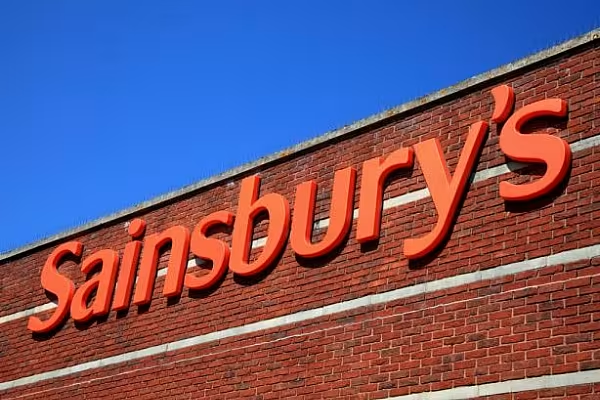Sainsbury's has posted flat (-0.1%) group sales for its 2019/20 financial year, with group like-for-like sales down 0.6% and underlying profit before tax down 2%.
Announcing its full-year results, the retailer said that it has seen 'strong grocery demand' since the start of March, with grocery sales up 12% in the first seven weeks of its 2020/21 financial year.
Here's how leading retail analysts viewed its performance:
Thomas Brereton, GlobalData
"After a fairly successful Q3 (Christmas) trading period, Sainsbury’s was likely feeling optimistic about 2020. But the arrival of COVID-19 has – as with all of its multi-sector rivals – upended plans as it looks to cope with soaring grocery demand (+12% for seven weeks to April 25th) while mitigating losses across Sainsbury’s non-food (-22%) and the clothing (-53%) divisions.
"As a result of the unprecedented disruption, Sainsbury’s now expects around a £500m+ impact on profit for the year, and has made the decision to forego its full-year dividend. This comes in sharp contrast to biggest rival Tesco, who moved ahead with a £635m dividend following its own recent results.
"Sainsbury’s results also shed light on how it expects retail to evolve for the remainder of 2020. Its expectation that operational disruption will abate by the end of H1 (mid-September) is an optimistic one, particularly a 'return to normal grocery market conditions' by H2; we expect a more permanent higher demand for home delivery as worries over crowded locations persist and previously offline-only consumers adapt to the new way of shopping."
Nigel Frith, www.asktraders.com
"Sainsbury's profit hit just goes to show how much retailers and supermarkets are relying on their consumer base to keep them afloat during their pandemic. It's completely understandable that their fuel sales have dropped, people aren't driving their cars as often and obviously more people are working from home or they have been furloughed.
"Their general merchandise may have only dropped by 22%, but that's still a massive slump compared to what they would have been at, at this point of last year. With many retail outlets that have closed amid COVID-19, it seems that British consumers are in fact listening to rules and purchasing only essential items - perhaps clothes in a supermarket doesn't seem to be classed as essential.
"With groceries also being up 12% at the supermarket chain, it seems to be that they have adapted pretty well to the pandemic - it might just be the case that another chain of the supermarket could be a lot closer to certain consumers or consumers are opting for cheaper products and therefore are going to different supermarkets."
Clive Black, Shore Capital
"Sainsbury's outgoing CEO, Mike Coupe, whom we wish well in his retirement, labelled the current Coronavirus crisis as unprecedented and the only thing that comes close is the three-day week in the 1970s. Accordingly, in faster moving times, Sainsbury's foresees present economic conditions acting as a catalyst to accelerate change; self-scanning, digitisation and the death of unsustainable retail names, amongst other things.
"In the face of such challenge and uncertainty, the Group is understandably limiting FY2021 guidance, indicating a 'base' expectation of flat current year earnings and deferring a decision on its FY2020 final dividend distribution, which will not be paid in July, to be reviewed in October."
Barclays European Food Retail Equity Research
"Overall we are very encouraged by this statement – it is a major relief that Sainsbury sees no need to inject capital into the Bank and trading in Argos has so far comfortably exceeded our forecasts. We had assumed PBT of £535m for 20/21, so if the ultimate outcome is similar to the £586m of 19/20 then this is clearly better than we forecast.
"Although the dividend deferral may disappoint some, it may ultimately be ‘caught up’ later in 2020. We struggle to see why the dividend would not be paid given there is no obvious net cash cost from the COVID-19 crisis."
Bruno Monteyne, Bernstein Research
"Sainsbury's H2 was slightly ahead of consensus expectations: sales were in line, PBT of £348m ended up +0.5% ahead and EPS +0.6% ahead. There was a beat on EBIT offset by a miss in finance costs, but we would attribute that to bad modelling by sell-side consensus. Sainsbury's have chosen not to pay a final dividend and defer to a later date, similar to Morrisons but unlike Tesco.
"Overall, with the numbers a touch ahead of expectations and quite reassuring profit guidance despite the looming recession risk, we expect the stock to be up on this. We struggle however with the level of positivity on this year's profits given the exposure to the bank and Argos."
© 2020 European Supermarket Magazine – your source for the latest retail news. Article by Stephen Wynne-Jones. Click subscribe to sign up to ESM: European Supermarket Magazine.














